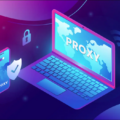Are you looking for ways to stay anonymous online? While it’s true that the internet has made life more convenient, it also poses risks to our privacy and security. With so much of our data available on the web, being anonymous is becoming increasingly important.
To protect yourself from prying eyes and keep your data secure, there are steps you can take to remain anonymous online. Here’s what you need to know about staying anonymous online.
1. Use a Virtual Private Network (VPN)
A Virtual Private Network (VPN) is an essential tool for anyone who wants to be anonymous online. A VPN encrypts your internet traffic, making it impossible for third parties (including your Internet Service Provider or ISP) to track your activity or location. It also masks your IP address and allows you to access websites that may be blocked in your region.
2. Use Tor Browser
Tor Browser is a free browser that helps route your traffic through a network of relays around the world, making it difficult for anyone to trace it back to you. The Tor network also makes use of encryption and provides access to websites not available on the regular internet, such as darknet markets. However, due to its complexity, Tor can be slow and unreliable at times, so it may not be suitable for everyone’s needs.
3. Use Secure Communication Tools
Avoid sending sensitive information over public networks like email or chat platforms like Skype or Messenger — these types of communication are not secure and can be easily intercepted by third parties. Instead, use secure communication tools such as Signal or Telegram which feature end-to-end encryption and provide additional security measures such as two-factor authentication (2FA).
4 Use Encrypted Cloud Storage Services
Storing data in the cloud can leave us vulnerable if we don’t take proper precautions — cloud storage services typically don’t offer sufficient encryption protocols to protect user data from hackers or other malicious actors. To ensure that our files are safe from prying eyes, use encrypted cloud storage services such as SpiderOak or Sync which offer secure file-sharing capabilities with strong encryption protocols in place for added security measures.
5 Be Careful On Social Media
Social media platforms are some of the most popular places for people to share personal information about themselves — but this can make us vulnerable if we don’t take proper precautions when using them. Be mindful of what you post on social media platforms and avoid posting sensitive information such as financial details or private conversations — even if your account is set to “private”, there is still a chance that this information could be leaked due to vulnerabilities within the platform itself or through other users who have access to your profile page. Additionally, consider using a pseudonym on social media accounts so that any personal information shared isn’t linked directly back to you in real life.
Staying anonymous online isn’t easy — but with the right tools and precautions in place, it is possible for anyone who takes the time and effort necessary into keeping their data safe from prying eyes!
Browsing Anonymously Without Being Tracked
Browsing without being tracked is becoming an increasingly important issue, and fortunately, there are a few steps you can take to protect your privacy.
First, make sure that you are using a secure web browser, such as Chrome or Firefox. Both of these browsers have built-in settings that allow you to control which sites can track your activity. To access these settings on Chrome, go to Settings > Privacy and security > Cookies and other site data. From there, you can toggle on the option to send a Do Not Track request.
Second, make sure that your browser is up-to-date with the latest security patches. Outdated browsers are more vulnerable to tracking and other malicious activities.
Third, consider using a virtual private network (VPN). A VPN creates an encrypted tunnel between your device and the websites you visit, making it much harder for your activity to be tracked by third parties.
Finally, use ad blockers whenever possible. Ad blockers prevent ads from loading on websites and can help reduce tracking attempts by advertising networks.
By taking these steps, you should be able to browse without being tracked or monitored by websites or advertisers.

Source: null-byte.wonderhowto.com
Is Tor Truly Anonymous?
No, Tor is not completely anonymous. While Tor can help protect your privacy and hide your online activity from your Internet Service Provider (ISP), it does not provde complete anonymity from government agencies or other malicious actors. For example, a government could use deep packet inspection to determine that you are using Tor and then launch an attack against you. Additionally, if someone is able to monitor the entry/exit node of the Tor network, they could theoretically link your IP address to the website you are visiting. Therefore, while Tor provides some level of anonymity, it is important to remember that it is not fully anonymous.
Finding an Anonymous Browser
The Tor Browser is the most complete anonymous browser available. It is based on the Tor network, an anonymous network of computers that encrypts your connection and hides your identity. With the Tor Browser, your location and identity are hidden from anyone who may be trying to track or observe you online. All your browsing activity is routed through a series of encrypted relays, making it impossible for anyone to trace it back to you. The Tor Browser also blocks third-party tracking cookies and other scripts that can be used to identify you. Additionally, it has powerful tools such as NoScript to further protect your anonymity while browsing.
The Possibility of Being Caught While Using Tor
Yes, it is possible to get caught on Tor. Even though the Tor network provides a high level of anonymity, it is not completely foolproof. Law enforcement and other agencies can use several methods to track down users on the Tor network, such as traffic analysis, exploiting vulnerabilities in the software, monitoring exit nodes, and deploying Honeypot nodes. Additionally, users can be identified if they make mistakes while using Tor, such as accessing sensitive websites or sharing personal information over the network. It is important for users to take proper precautions while using Tor to ensure their anonymity remains intact.
Is It Legal to Use Tor?
Yes, you can use Tor legally in the United States. Tor is a free and open-source software program that enables anonymous communication. It is used by millions of people around the world to protect their privacy and safety online. It is not illegal to use the Tor browser, but it is important to remember that Tor does not protect you from criminal charges if you use it for illegal activities. It is also important to remember that websites can track your IP address, so if you are visiting websites that have questionable content, you may still be traceable. Therefore, it is important to weigh up the risks of using Tor before deciding whether or not to do so legally.
Conclusion
In conclusion, anonymous online activity can be achieved by taking certain precautions. Using a VPN or Tor Browser is a great way to hide your location and browsing activity from others. However, while these tools can provide anonymity, they cannot guarantee total privacy and anonymity as your Internet Service Provider can still detect that you are using them. Therefore, it is important to remember that no one is ever completely anonymous when using the internet.








